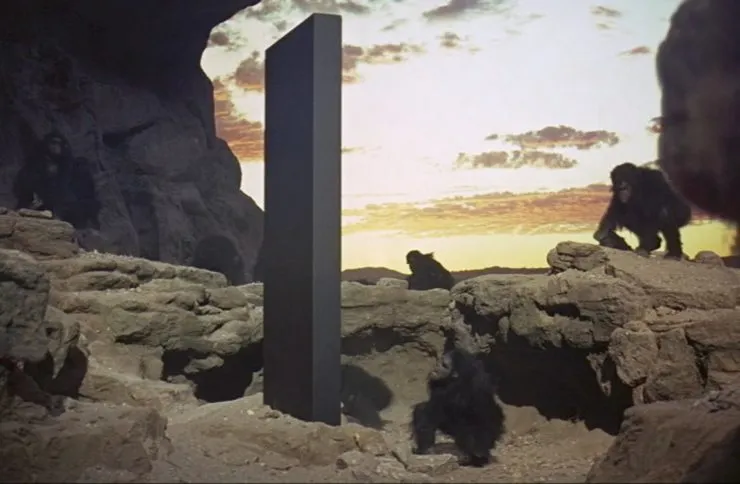
Momento mori: sure there’s time?
Time…it’s like light, air and water. We have plenty, until…we don’t. The April 8 solar eclipse that brought thousands to Texas, for just a nanosecond, revealed a darkness unlike any other. That total absence of light, reminded me of evil, also a negative: absence of goodness, of God. All of which brings up another absence.
Death. In our twenty-first-century, is there anything more terrifying to the modern mind? In fact, scientists like Ray Kurztweil have devoted their entire careers in an effort to achieve immortality. Recently, at a Silicon Valley Conference, Kurtzweil declared that immortality will be achieved by 2030 with this phrase– “the singularity is nearer.” Cleverly, it’s the title of the scientist’s new book with the horrific sub-title, “When We Merge With AI.”
Huh?
Singularity: the merging of the machine with the human mind is how Kurtzweil and other tech giants define it. It’s a most curious use of this noun since phycists define singularities as “places in the universe where the laws of physics simply break down.” What could possibly go wrong with the notion of transhumanism?
Sarcasm aside, do you remember the 1968 film, 2001, A Space Odyssey, and the black monolith that appeared episodically–and ominously– throughout the film?

The movie, specifically the monolith, was, to my twenty-something-atheistic-self, an explicit warning to humanity. I saw it at least five times, each time thinking about the need for boundaries to knowledge, that once known a thing cannot be unknown. Never dreaming that I was thinking of the tree of good and evil.
Many decades later, here we are scrolling through articles that discuss merging human brains with artificial intelligence to defeat disease and death as reasonable. The notions of creating superintelligence, superlongevity, and superhappiness — the goals of transhumanism–are….what?
Wait-what does it mean?
Right–momenti mori: remember, you must die. The Latin phrase is believed to have originated with ancient conquering Roman leaders whose slave whispered the phrase into their ears as they rode through the jubilant crowds of citizens. In his website, Daily Stoic, Ryan Holiday writes this.
Epictetus would ask his students, “Do you then ponder how the supreme of human evils, the surest mark of the base and cowardly, is not death, but the fear of death?” And begged them to “discipline yourself against such fear, direct all your thinking, exercises, and reading this way — and you will know the only path to human freedom.”
It isn’t only stoic philosophers and Roman soldiers who recommend a daily reminder of our death. Saint Benedict writes in his chapter, “The Tools for Good Works, to “day by day, remind yourselves that you are going to die.” Similarly do the Hindus and Buddhists.
Why?
To make sure we make use of time, to discipline our minds and bodies. To live virtuously, training our souls for the next life.
To our death-defying transhumanists mentioned earlier, such a practice is morbid or even foolish. Momento mori: sure you have time? Each of us is this mysterious combination of body and soul. Human beings are immortal. After death, we’ll go somewhere- heaven or hell, even those who don’t believe there are such thibgs. Not our bodies, of course we sense them dying, more so as we age. The souls created by God when we were thought into being will live forever. The phrase sounds quaint when we place it next to the sophisticated, scientific wizardry of integrating a human mind with a computer, doesn’t it?
Thought into being
King David sings to Our Lord in Psalm 139:
LORD, you have probed me, you know me:
you know when I sit and stand;*
you understand my thoughts from afar
You formed my inmost being;
you knit me in my mother’s womb.
I praise you, because I am wonderfully made; wonderful are your works!
Intelligence, no matter how brilliant the mind and its acquired knowledge cannot lead us to the Person, Jesus. Jesus cannot be known by reading about his life. Or by the study of theology. Or comparative relgion. Jesus lives on the other side of reason.
How do we get there, to the other side of reason? Ask for faith–faith: the first of the theological virtues of faith, hope and charity.
We have what we need
Saint Basil’s definition of sin–I’ve italicized it below–cuts through the opacity of scientific jargon. Humanity is created in the image and likeness of God. We bear his law written in our hearts. Any manipulation of human gender and/or mind and/or preborn life is nothing other than sin.
“First, let me say that we have already received from God the ability to fulfill all his commands. We have then no reason to resent them, as if something beyond our capacity were being asked of us. We have no reason either to be angry, as if we had to pay back more than we had received. When we use this ability in a right and fitting way, we lead a life of virtue and holiness. But if we misuse it, we fall into sin.
This is the definition of sin: the misuse of powers given us by God for doing good, a use contrary to God’s commands. On the other hand, the virtue that God asks of us is the use of the same powers based on a good conscience in accordance with God’s command.
Since this is so, we can say the same about love. Since we received a command to love God, we possess from the first moment of our existence an innate power and ability to love. The proof of this is not to be sought outside ourselves, but each one can learn this from himself and in himself.”
Saint Basil




Beautiful food for my heart and soul this week. Thank you Lin for sharing your gift ❤️
Hey there good friend prayers for a most holy retreat week!